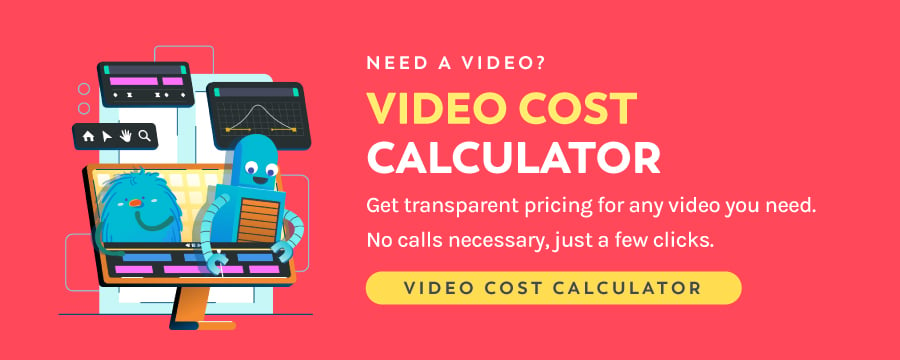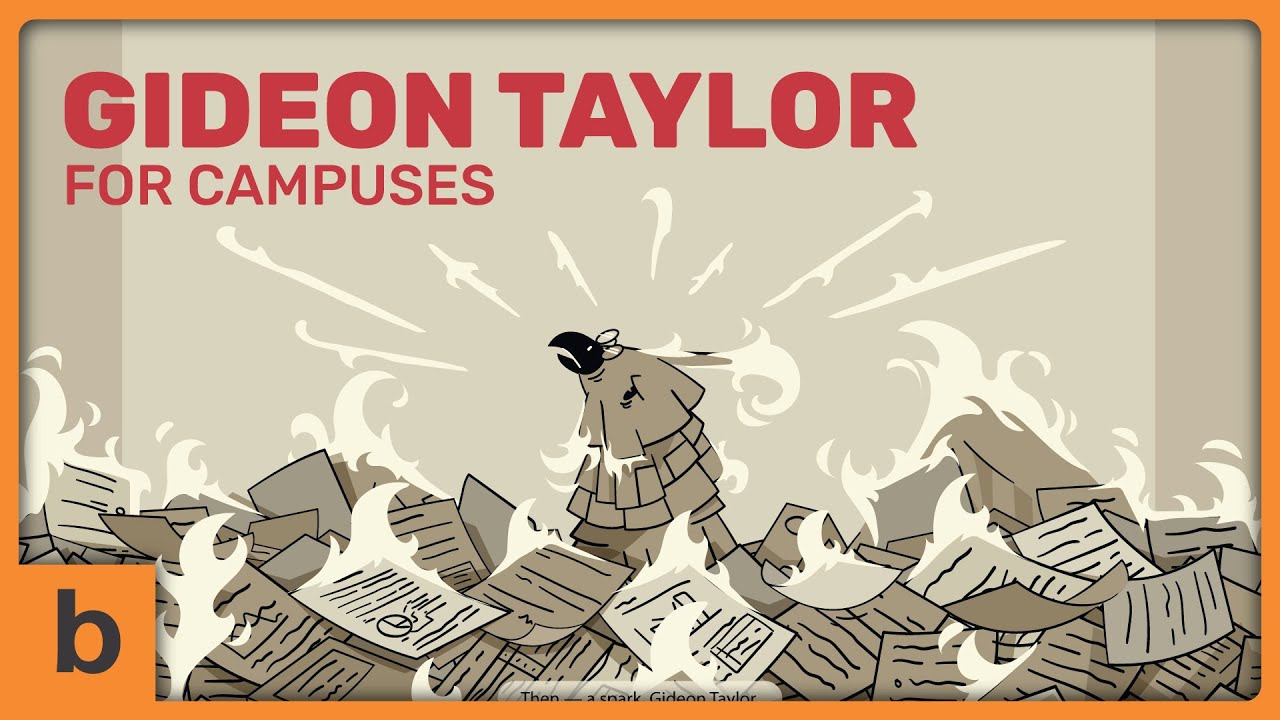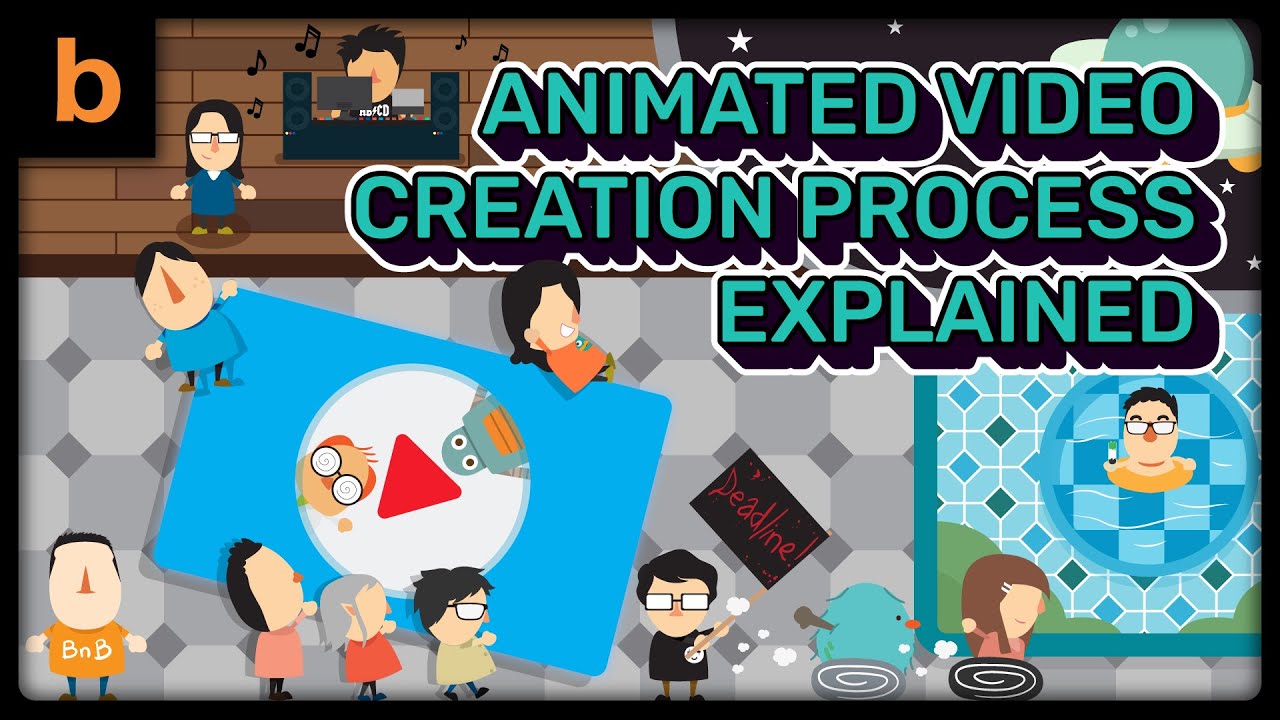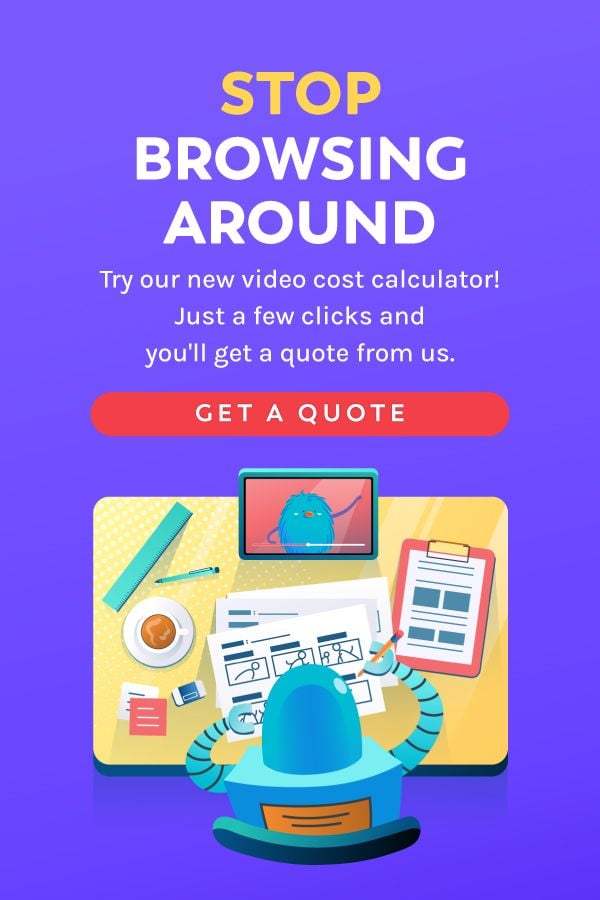Table of Contents ×
- 1 Why Should I Ask These Questions in the First Place?
- 2 What Happens If I Don’t Ask These Questions?
- 3 What Questions Should I Ask a Video Production Company?
- 3.1 1. “How long will the project take from start to finish?”
- 3.2 2. “What’s included in the price?”
- 3.3 3. “Do you offer packages for multiple videos or future updates?”
- 3.4 4. “How many revisions do I get (and at which stages)?”
- 3.5 5. “Can I give feedback at every stage of the process?”
- 3.6 6. “How will we communicate throughout the project?”
- 3.7 7. “Have you worked with businesses like mine before?”
- 3.8 8. “What’s your creative process like, and how flexible is it?”
- 3.9 9. “Who owns the final video and source files?”
- 3.10 10. “How do you handle tight deadlines or rush projects?”
- 4 Takeaway
- 5 Mini FAQ: Questions to Ask a Video Production Partner
Before you jump into production, it’s important to ask the right questions, like:
- How long will the video take to make?
- What’s included in the price?
- How many revisions do I get?
- Can I give input during the script and storyboard phase?
Asking the right questions can save you thousands of dollars and weeks of frustration. After managing 4000+ video projects, I’ve seen what happens when clients skip this crucial step.
In this article, I’ll walk through the most essential things to ask your chosen studio before starting, so you can avoid surprises, stay on budget, and get the results you want.
Why Should I Ask These Questions in the First Place?
Because without asking the right questions early on, it’s easy to run into mismatched expectations, delays, or surprise costs down the line.
Not all explainer videos and not all studios are built the same.
Some offer an end-to-end service with everything from scripting to sound design, while others may expect you to handle parts of the process yourself.
That’s why it’s important to come prepared. Before you reach out to a studio, get clear on a few basics:
- What’s the goal of your video? (To explain, convert, raise awareness, etc.)
- Who’s your target audience?
- Do you have a deadline or launch date?
- What’s your budget range?
- Do you already have a script, voiceover preference, or brand guidelines?
Having this information ready will help the studio give you more accurate responses and timelines, as well as make your project easier to manage from day one.
The next section covers key questions to ask any studio before you get started.
You don’t have to ask every single one at once, but covering most of them will save you time, money, and a lot of back-and-forth later on.
What Happens If I Don’t Ask These Questions?
Skipping the important questions might seem harmless until you’re halfway through the project and suddenly find out that script changes cost extra, the deadline is longer than expected, or the final style doesn’t match your brand.
Here are a few common issues that happen when clients don’t ask the right questions upfront:
- Surprise costs. You assumed revisions were included; they weren’t.
- Timeline confusion. You planned a launch in 3 weeks; the studio needs 6.
- Style mismatch. You expected a playful 2D animation; they delivered something flat and corporate.
- Limited involvement. You thought you’d give feedback at every step; turns out, you only get one review round.
These situations aren’t always the studio’s fault. Most of the time, they come from miscommunication or unclear expectations.
That’s why asking the right questions early helps prevent this, keeps the collaboration smooth, and makes sure you get a video that does its job.
When you collaborate effectively with your chosen video studio, everyone wins.
In fact, a study by the Institute for Corporate Productivity found that teams with strong collaboration are five times more likely to be high-performing.
What Questions Should I Ask a Video Production Company?
The best time to ask questions is before the contract is signed and production starts. A good studio should be open to answering anything you need to feel confident about the process.
If you don’t have time to read every detail right now (or you just want a checklist to bring into your next discovery call), this table summarizes the essential questions to ask any video production studio.
Each question gets to the heart of what really matters: time, cost, control, collaboration, and results.
Here are the most important ones to cover and then, we’ll break each of them down.
| Question | Why It Matters | |
| 1 | How long will the project take? | Helps you plan your launch, avoid last-minute delays, and understand the production flow. |
| 2 | What’s included in the price? | Prevents surprise costs and clarifies what services are bundled (like scriptwriting, voiceover, revisions). |
| 3 | How many revisions are included? | Tells you how flexible the process is and whether you can make changes without extra fees. |
| 4 | Can I give feedback at every stage? | Ensures you have visibility and input throughout, especially during scripting and storyboarding. |
| 5 | Have you worked with businesses like mine? | Gauges how well the studio understands your industry, audience, and tone. |
| 6 | What’s your creative process like? | Shows how organized they are and whether their workflow fits with your internal team’s process. |
| 7 | How do you make sure the video meets our goals? | Distinguishes between studios that just animate and those that think strategically |
| 8 | Who owns the final video and source files? | Helps avoid future limitations or fees if you need to repurpose or edit the video later. |
| 9 | How will we communicate during the project? | Sets expectations for responsiveness, tools used, and your main point of contact. |
| 10 | How do you handle tight deadlines or rush projects? | Important if you’re working with a fixed date or last-minute project; shows how flexible they are. |

1. “How long will the project take from start to finish?”
This is one of the first things you should clarify, especially if your video is tied to a product launch, campaign, or event.
Explainer video production typically takes between 3 to 8 weeks, but the exact timeline depends on the studio’s workflow, how many people are involved, the video’s length and complexity, and how quickly you provide feedback.
At Breadnbeyond, here’s a rough breakdown of what the timeline usually includes:
- Scriptwriting: 2-5 days
- Storyboard and style frames: 5-7 days
- Voiceover recording: 2-3 days
- Animation: 1-3 weeks, depending on length and detail
- Revisions and polishing: 3–5 days
Some studios work in stages, where you need to approve each step (script, storyboard, animation) before moving forward. Others might combine stages to move faster.
Ask your chosen studio:
- What’s your standard turnaround time?
- Is there a way to speed up the process (if I need it)?
- What happens if there are delays on either side?
- Will I get a detailed production schedule?
2. “What’s included in the price?”
Not all studios define their pricing the same way, so it’s important to get a clear breakdown of what’s actually included in the quote.
Some offer a flat, all-inclusive video package, while others charge separately for each stage, like scriptwriting, voiceover, or revisions.
Here are some things to ask about:
- Does the price include scripting, storyboarding, and animation?
- Are voiceover and background music included, or will those be extra?
- How many rounds of revision are covered?
- Will I get full rights to use the final video however I want?
Also, clarify whether the pricing is per minute, per project, or based on complexity.
For example, a 30-second whiteboard video is priced very differently from a 90-second 2D character animation.
Knowing exactly what you’re paying for helps you compare studios fairly and prevents unpleasant surprises when the invoice arrives.
3. “Do you offer packages for multiple videos or future updates?”
If you know this won’t be your only video, it’s worth asking about bulk pricing or long-term collaboration options.
Some studios offer discounts if you commit to creating more than one video, or if you plan to produce content regularly (such as product updates, feature explainers, or seasonal campaigns).
Others, like Breadnbeyond, offer a video production retainer so you can keep producing videos on a monthly basis without starting from scratch every time. So, you can ask:
- Do you offer bundle pricing for multiple videos?
- Can we create a video “template” for faster future versions?
- What’s the process like if I need another video later on?
We’ve worked on video series for clients like Gideon Taylor, where we built several explainer videos around similar themes, visual styles, and pacing.
Here’s one video of the series:
Since we already had the brand style and animation assets set up, each new video took less time and was more cost-effective.
If you’re thinking ahead to future campaigns or onboarding flows, this kind of long-term collaboration can really pay off.
4. “How many revisions do I get (and at which stages)?”
According to a Wrike survey, it shows that projects following a well‑structured timeline are 63% more likely to finish on time and stay within budget.
That’s why timeline-related questions like “How many revisions?” or “What happens with rush requests?” are so important.
Most studios include 1-2 rounds of revision per stage (script, storyboard, animation), but this can vary depending on the packages you choose.
There are studios that offer unlimited revisions for an additional fee.
But you might also find other studios that are quite strict about revision limits to keep the timeline on track.
To do yourself a favor, ask the studio:
- How many revisions are included for the script, visual style, and animation?
- What qualifies as a “revision”? (Small tweaks vs. full rewrites)
- What happens if I want more changes after the included rounds?
- Are revision requests tracked or time-bound?
5. “Can I give feedback at every stage of the process?”
You should absolutely be involved. But how much and when depends on the studio’s workflow.
A good video production process is collaborative, with client approvals at key milestones like the script, storyboard, and animation.
Getting involved too late (like after animation is already done) can make changes time-consuming and expensive.
On the flip side, too much back-and-forth can slow everything down.
Look for a balance: clear check-in points where your input is expected, without micromanaging every frame.
Here are some of the most asked questions my clients often ask about their involvement with the project:
- At which stages will I be able to review and give feedback?
- How do I submit my feedback, email, calls, and project platform?
- Will you guide me on how to give clear, useful feedback?
6. “How will we communicate throughout the project?”
Smooth communication is crucial. Even with the most talented studio, if updates are scattered across email threads, forgotten Slack messages, or missed meetings, things fall apart quickly.
You want to know how updates will be delivered, how often, and who your point of contact will be.
In our own studio, we’ve learned that even the most creative teams need structure to keep things on track.
We give clients one clear point of contact, share a timeline upfront, and send progress updates at every milestone.
It keeps everyone aligned and makes the project feel much less overwhelming, especially for clients who’ve never gone through the video production process before.
The answer to these questions might come in handy:
- Will I have a dedicated project manager or account rep?
- What tools do you use: email, Basecamp, Trello, Notion, Slack, something else?
- How often will I get updates or check-ins?

7. “Have you worked with businesses like mine before?”
A studio might have hundreds of videos under its belt, but if none of them are in your industry or speak to your audience type, there could be a disconnect in tone, messaging, or visual approach.
Look for signs that the studio understands your space.
Both technically and strategically. Bonus points if they can suggest angles, messaging, or visuals that align with your audience’s expectations.
You don’t necessarily need a niche-specific studio, but it’s worth asking:
- Have you created videos for startups, SaaS, healthcare, finance, education, etc.?
- Can you show samples that target a similar audience or serve a similar function (e.g., onboarding, explainer, product demo)?
8. “What’s your creative process like, and how flexible is it?”
Studios tend to follow a structured workflow. But how they handle that structure says a lot. I’ve seen how a rigid, “one-size-fits-all” approach can frustrate clients with unique needs.
At the same time, no structure at all leads to endless revisions and confusion.
For example, some clients we’ve worked with already have an internal scriptwriter, so we skip that stage. Others need help figuring out what to say in the first place.
A good studio knows when to lead and when to adapt, and that flexibility often makes the difference between a smooth project and a stressful one.
To help clients understand exactly how it works, some studios (including us!) even created an explainer video about their own workflow.
That way, clients can see upfront what to expect and where their input matters most.
Here are some questions you can ask regarding the creative process of a studio:
- How do they typically kick off a project?
- Is their process linear (step-by-step) or more collaborative?
- Are they open to adapting their workflow based on your internal deadlines or brand approval cycles?
9. “Who owns the final video and source files?”
Ownership matters a lot. Once the project is complete, do you have full rights to use the video however and wherever you want?
What if you want to cut it into shorter clips later, or translate it for another market?
Also, ask about source files (like project files, illustrations, or layered assets). Some studios hand these over, others charge extra, and some keep them entirely.
From a studio owner’s perspective, we’ve seen clients come back months later needing to tweak a scene or update a logo.
Having those files, or at least knowing your access level, can save time and frustration.
Here’s what to clarify:
- Do I own the full rights to the final video?
- Can I use it on social, paid ads, websites, internal platforms, etc.?
- Do I get the source files or just the rendered video?
- Is there an additional fee for editable files?
10. “How do you handle tight deadlines or rush projects?”
Sometimes, you don’t have six weeks. Maybe you have a product launch around the corner, an investor pitch next week, or a last-minute campaign that needs a video now.
If timing is critical, you need to know whether the studio can adjust its process. Or if you’re better off finding a team that specializes in quick turnarounds.
But rushing a video doesn’t always mean that everyone has to speed things up. It’s more about doing it without cutting corners.
A solid studio should have a system in place for fast-tracked projects, including:
- Streamlined approval steps (fewer feedback rounds, or faster response expectations)
- Pre-approved templates or animation styles to save time
- A clear rush fee structure and realistic timeline commitments
You can ask the studio:
- What’s the fastest turnaround you can manage?
- Do you offer a “rush” service or pricing?
- What changes in your process when a project is expedited?
- Will a faster timeline affect quality or revision limits?
From our own experience, rush projects can work smoothly when both sides are responsive and aligned from day one.
But they also require clear boundaries: if you need it fast, be ready to make decisions fast, too.
Make sure the studio is confident in delivering under pressure, and that you’re both on the same page about what’s possible within the time you have.
Takeaway
Don’t shy away from asking questions. Thoughtful, curious clients often turn out to be the best creative partners.
When you take the time to understand how a studio works, what’s included, and how the team communicates, you’re laying the groundwork for a smooth and successful project.
At Breadnbeyond, I actually love it when clients come prepared with great questions. It shows they care about the outcome just as much as we do.
In the end, it’s less about making a video and more about creating something that truly moves the needle for your brand.
Mini FAQ: Questions to Ask a Video Production Partner
- Is it okay if I ask a lot of questions?
Yes, please do. A good studio always welcomes them. The more clarity you have going in, the smoother the whole project goes. No such thing as too curious.
- What if I don’t really know what I want yet? What questions should I prioritize?
Totally normal. Many clients come in with only a vague idea (“We want a video for our homepage… we think”). Start with the basics: What’s your goal for the video? Who’s your audience? Where will you use it? A good studio will help guide the rest.
- Am I expected to know animation lingo or jargon before asking any questions?
Nope. You don’t need to speak in “keyframes” or “FPS.” It’s the studio’s job to translate ideas into visuals, not quiz you on motion design terms. Just explain your goals in plain language.
- Is it okay to ask about video pricing early on?
Absolutely. Clear budgets save everyone time. Just make sure you understand what’s included and what isn’t.
- I’ve never done this before. Should I hire a consultant first?
Not necessarily. A reliable studio should walk you through everything, even if it’s your first time. Clarity beats experience.




